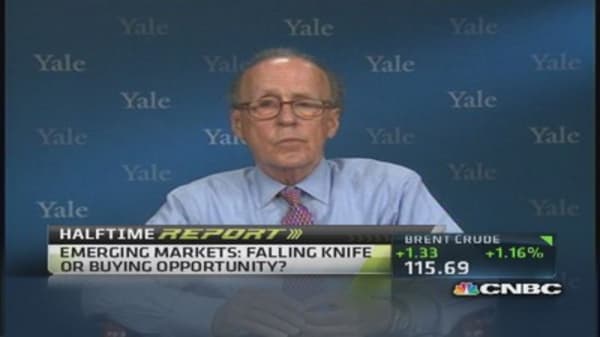The rout in emerging market (EM) currencies is unlikely to be contained and could lead to a global crisis, according to Societe Generale strategist Albert Edwards.
Edwards, who is known for his extremely bearish views, argues that the sharp fall in emerging Asian currencies will force China to devalue the yuan in order to remain competitive and that, in turn, will trigger deflation in western economies and subsequently lead to a worldwide downturn.
(Read more: Goldman downgrades emerging Asia currencies)
"At the moment, investors think that the problems are isolated to a few emerging market countries that have allowed their current account deficits to get out of hand. I see this as the beginning of a process where the most wobbly domino falls and topples the whole precarious, rotten, risk-loving edifice that our policy makers have built," Edwards said in a note.
"The emerging market rout is merely the final tweet of the canary in the coalmine," he added.
Edwards believes the consequences of the fallout will be dire, and reiterated some of his more recent drastic forecasts.
Gold will soar to $10,000 per ounce, he said, while U.S. Treasurys will yield less than 1 percent and the U.S. S&P 500 will plummet over 72 percent to levels of 450. He did not give a time frame for these moves, however.
(Read more: Gold within striking distance of bull territory)
To back up his view, Edwards compared the performance of the S&P 500 in 2013 and the index's performance just before Black Monday on October 19 in 1987 - when stocks on Wall Street crashed 20 percent - drawing parallels between the two.





